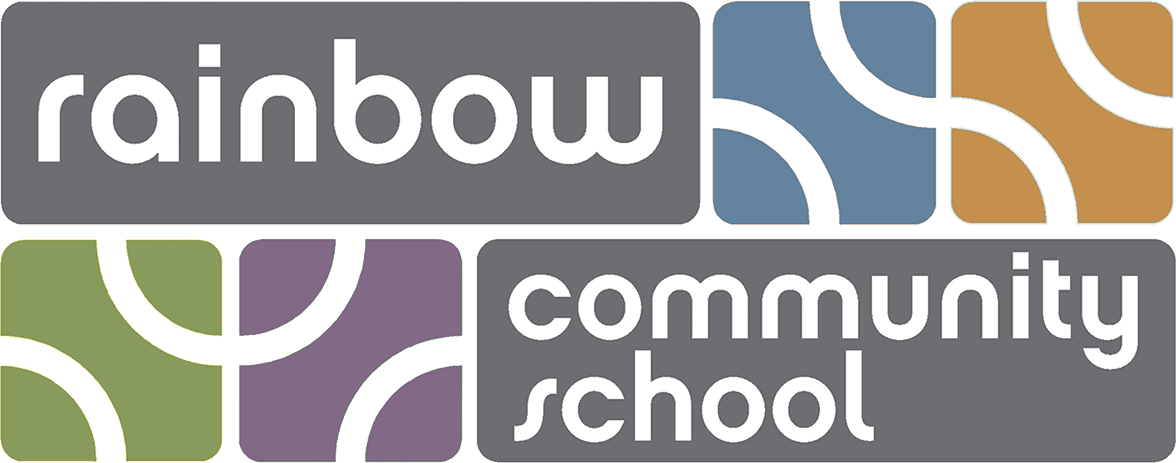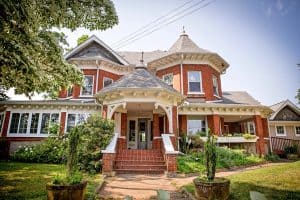
Rainbow Community School has been recognized as NC Green School of Excellence since 2014. Each year we audit our curriculum and programming in order to renew our certification West Willmore, our Curriculum Director spent the better part January exploring elements of our Natural Domain curriculum and environmental program and practices. She collected curriculum updates, artifacts, pictures and anecdotes that addressed NC Green Schools rubric components. Please take a look at the school summary and powerpoint to get a better picture of all the amazing Green School practices and activities that we are currently doing.
From NC GREEN SCHOOLS- “Congratulations! Your school has successfully renewed your status as a NC Green School of Excellence! We are so proud of all that your school is doing to teach the students about the interconnectedness of humans and nature and showing the students how to take care for the environment all school year long. We believe that this education will last a lifetime and we are proud to witness and acknowledge this as cutting edge. We recognize all that you do at Rainbow Community School, especially for empowering students to take on leadership roles in the school, for actively creating community engagement and partnerships, and nurturing the students’ natural curiosity to dive deep into their experiences in the outdoor learning environment.”
Rainbow Community School pursued the NC Green School of Excellence designation in the hopes of sharing our efforts and ideas, inspiring positive change in other schools and collaborating with other organizations to encourage collective efforts. The natural world serves as an important teacher in the lives of all our students. For example, connection to the natural world is celebrated in our mission to “develop accomplished confident, and creative learners who are prepared to be leaders in building a compassionate and environmentally sustainable world” and as one of our guiding principles “through understanding nature we understand ourselves therefore the learning environment extends into the natural world, the greater community and children spend as much time outside as possible. Children who have a relationship with nature will take care of it.” Additionally, environmental sustainability and stewardship and nature appreciation and education are part of our daily rituals and routines. Moreover, RCS is recognized by Ashoka to be a Changemaker School. The Changemaker Schools Network is a community of schools that as part of their mission and method support children in developing skills that aim to solve challenging problems and effect positive local, national and global change. To that end, elements of every grade’s curriculum integrates these changemaking skills and efforts and often children have opportunities to discuss, research, and design innovative solutions to many environmental problems. Indeed, Rainbow’s mission and vision incorporate learning that has, at its heart, a desire to instill a love for self and a love for the planet in a changing world.
The Natural Domain is emphasized as one of Seven RCS Learning Domains. From eco-conscious and green building practices, time spent in learning in the out of doors, to earth based celebrations, to Citizen Science, to recycling, composting, water conservation and gardening, to participation in Strive not to Drive Week, Screen Free Week and Blackouts, RCS actively strives to build a compassionate and environmentally sustainable school. We do however, have an exciting project currently in the works. Our 5 acres is becoming an urban oasis in bustling West Asheville. The recent campus expansion yielded some additional green space and we are working on the development of additional outdoor learning spaces. These outdoor learning spaces will be resources to the RCS student body and families and staff. We have been receiving grants and expertise from various local organizations such as River link, Buncombe County Soil and Water and the NC Arboretum to plan for a nature trail, native habitats, Citizen Science way stations, and storm water management technologies. We plan to integrate a sizeable native habitat area that focuses on attracting many species of birds and pollinators. This will include an observation station for students to take notes and observe the wildlife. Along the vegetated swales RCS will plant a forest garden. This garden will utilize roof water coming off of the outdoor pavilion/classroom and will include a variety of fruit trees and shrubs, as well as herbs and flowering plants. There will also be an observation station near the wetland area. This new ecosystem will attract an increasingly diverse amount of flora and fauna. This new space will also incorporate additional STEM curriculum into all our environmental programming.












